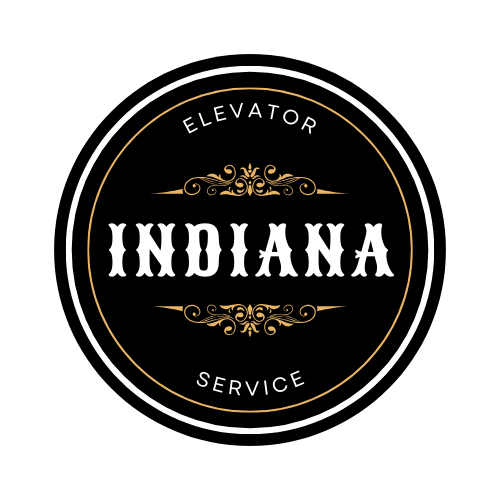Elevator Inspections & Code Compliance
When was the last time your elevator was inspected? Did you just receive a notice from your city or State that your elevator has inspection violations? We can help correct these violations before you're faced with fines or penalties.
Elevator Inspections 101: Guide to Code Compliance
Elevators are a crucial part of any building, be it a commercial or residential one. They make our lives easier by saving us time and energy, but have you ever wondered about the importance of elevator code compliance? In this blog post, we will explore everything that you need to know about elevator inspections and code compliance. From understanding what elevator code compliance is and its importance to the inspection process and common findings, we'll cover it all. We'll also dive into what steps you can take to ensure your elevators meet code requirements and what happens if they don't. So let's get started and ensure the safety of everyone who uses your elevators!
Understanding Elevator Code Compliance
Elevator code compliance is essential to guarantee safety and accessibility for public use, including wheelchair lifts. Adherence to ASME A17.1 and ADA standards is crucial, especially for service elevators and hydraulic elevators. Regular elevator inspections are necessary to ensure compliance with elevator safety code, promoting public safety and accessibility. Stairway chairlifts, QEI, CSA, DOB, and stairway should be considered in maintaining code compliance.
Definition and Importance of Elevator Code Compliance
Elevator code compliance encompasses meeting safety standards for public and freight elevators, including emergency communication, braille, and handrail requirements. Adherence to the safety code is crucial for obtaining a certificate of compliance. It also involves alterations, new installations, and plan review as overseen by the department of licensing and department of buildings. Elevator code compliance is essential for ensuring public safety and accessibility.
The Role of ASME A17.1 Code in Elevator Inspections
Compliance with ASME A17.1 code is crucial for safe elevator operations, encompassing escalators, dumbwaiters, and stairway chairlifts. This standard also dictates qualifications for elevator contractors and generator safety. ASME A17.1 code compliance is integral to elevator inspections and includes regulations for installer certification and email issuance, ensuring that elevators, including stairway chairlifts, meet industry standards and are safe for public use.
American Elevator Inspections
Ensuring compliance with safety codes, American elevator inspections focus on ada code adherence and service elevators. Hydraulic elevators, freight elevators, and chairlifts are encompassed, verifying compliance with ASME A17.1 code and wheelchair lifts. The inspection process assesses conformance with safety standards and codes, including stairway chairlifts and other NLP terms to enhance safety and functionality.
The Inspection Process
The evaluation process ensures adherence to ASME A17.1 and elevator ADA codes. Inspections assess safety code compliance for dumbwaiters and emergency communication. Reports detail compliance with elevator ADA code and verify braille usage. Evaluations also cover ASME A17.1 code, escalator safety, and alterations. The process encompasses requirements for stairway chairlifts, QEI, CSA, DOB, and stairways to enhance safety and compliance.
Common Findings in American Elevator Inspections
During American elevator inspections, violations of ASME A17.1 code are commonly found, along with non-compliance with elevator ada code. Inspection reports often reveal shortcomings in elevator safety code compliance, including deficiencies in emergency communication systems. Furthermore, non-conformities with ASME A17.1 code requirements are frequently identified. These common findings highlight the need for strict adherence to safety codes and regulations.
Ensuring Your Elevators Meet Code Requirements
Regular elevator inspections and code review are essential steps to ensure compliance. Thorough plan review and alterations are necessary to meet elevator safety code requirements. Adhering to department of licensing regulations is crucial for elevator ada code compliance. Additionally, meeting compliance with safety code, ASME A17.1, and wheelchair lifts standards is imperative for elevators to meet code requirements. Generator safety measures must also be implemented to ensure compliance.
Steps to Ensure Compliance
Collaborating with a qualified elevator contractor is crucial to ensuring compliance. Addressing alterations and new installations are essential steps, along with regular elevator inspections, for safety code adherence. Elevator ADA code compliance necessitates a comprehensive plan review process. It also involves following the guidelines set by the Department of Buildings for overall compliance with elevator safety code.
What Happens if My Elevator isn't Compliant?
If your elevator isn't compliant, you may face penalties, fines, or even shutdowns. Non-compliance can lead to service interruptions and jeopardize public safety. It's important to promptly address any non-compliance issues to avoid disruptions and ensure the safety of elevator users.
Conclusion
In conclusion, elevator code compliance is crucial for the safety and functionality of your elevators. It ensures that your elevators meet the necessary standards and regulations set by organizations like ASME. Regular elevator inspections play a vital role in identifying any deficiencies or issues that need to be addressed to maintain compliance. By following the necessary steps to ensure compliance, you can ensure the safety of your building occupants and avoid potential penalties or legal consequences. If you have any concerns about the compliance of your elevators, it is important to consult with a professional inspector who can guide you through the process and help you rectify any non-compliance issues.
Contact Us
Contact Us
Don't be a stranger!
350 Massachusetts Ave # 210
Indianapolis, IN 46204
